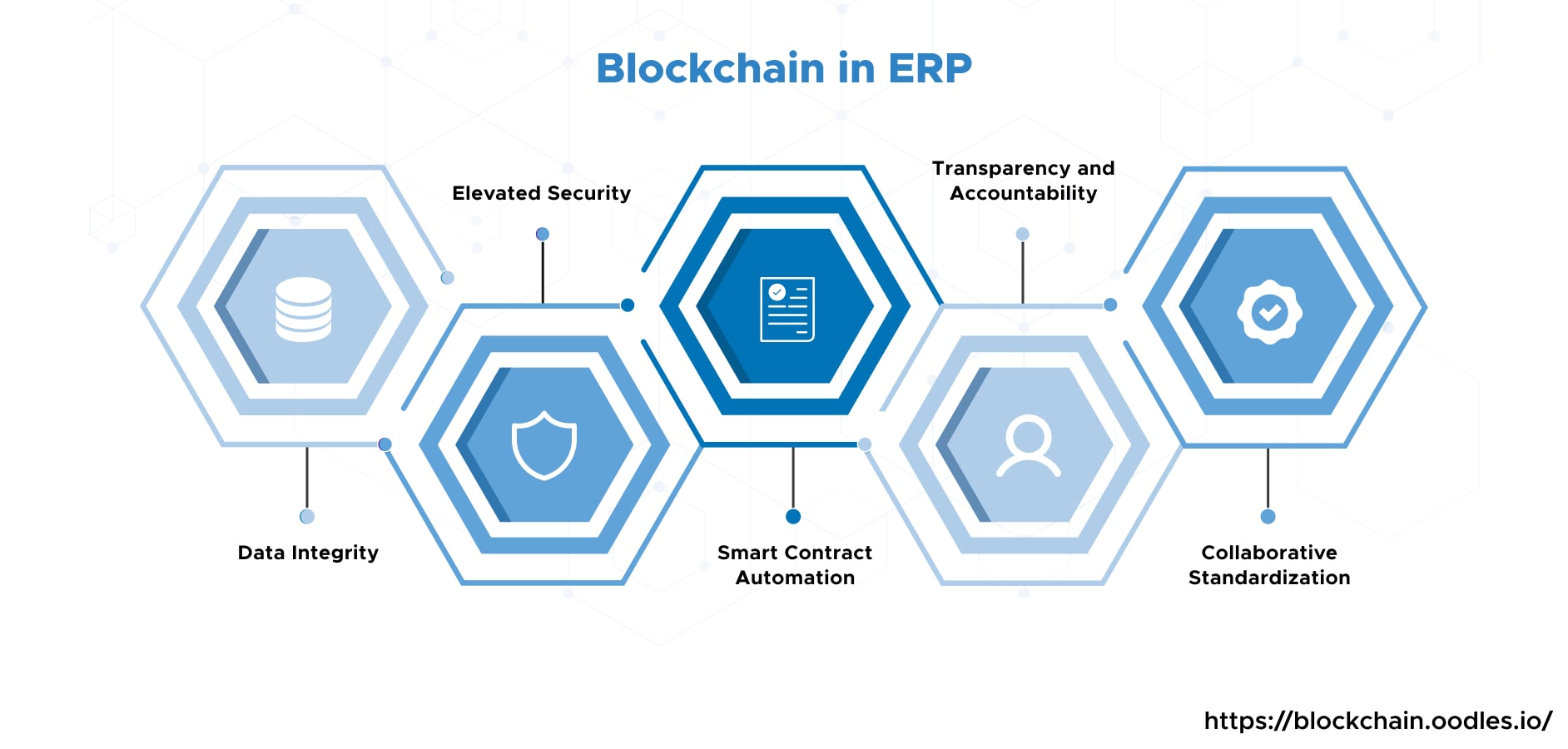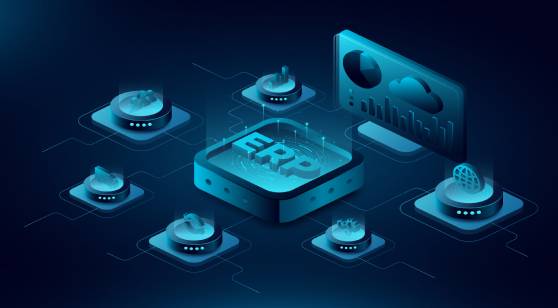-
Enterprise Resource Planning (ERP) systems have long been the driving force behind streamlining business operations, managing resources, and optimizing efficiency. However, the technology is facing challenges related to data security, transparency, and accuracy. Blockchain application development has emerged as a transformative catalyst for ERP systems. It can change the way businesses manage resources, streamline processes, and ensure data integrity in an increasingly digital landscape.
Blockchain in ERP
The convergence of blockchain and ERP promises to reshape business operations fundamentally. Blockchain, originally designed to power cryptocurrencies, has evolved into a robust technology with implications far beyond digital currencies. At its core, blockchain operates as a decentralized and immutable ledger, providing secure transaction records.
Transparency, resistance to tampering, and a decentralized structure are inherent qualities of this technology. These qualities have captured the attention of enterprises seeking innovative solutions to long-standing challenges within their ERP ecosystems. This fusion has the potential to catalyze a paradigm shift in ERP.
Here is how blockchain technology can help businesses manage data, transactions, and operational processes:

Suggested Read | Advancing BPM (Business Process Management) with Blockchain
Unlocking Data Integrity with Blockchain
Data integrity is paramount for enterprises relying on ERP systems to handle vital information. Conventional ERP systems often entail multiple stakeholders contributing and accessing data. It leads to data disparities, irregularities, and the potential for fraudulent activities.
Here, blockchain with its immutable ledger can meticulously document each transaction. Once information is registered, any alteration or deletion necessitates consensus from the network. It creates an environment where data stored within ERP systems remains impervious to tampering and gains heightened credibility.
Check It Out | Blockchain and its Significance in Big Data
Transparency and Accountability in the Business
Transparency and accountability lie at the core of ethical business practices. Blockchain's transparent and auditable nature aligns perfectly with these principles. When transactions are recorded on a blockchain, they are visible to all relevant parties in real time.
This transparency fosters trust among stakeholders and reduces the potential for fraudulent activities. Businesses can confidently trace every transaction's journey, from origin to completion. Thereby, it establishes accountability throughout the supply chain.
Also, Discover | Blockchain for Supply Chain Transparency And Efficiency
Elevating Security in ERP Systems
Security breaches pose significant threats to ERP systems. They jeopardize sensitive business information, customer data, and intellectual property.
Blockchain introduces enhanced security measures by design. The decentralized architecture reduces the single points of failure inherent in centralized systems. Thus, blockchain makes it exceptionally challenging for malicious actors to compromise the network.
Furthermore, blockchain's consensus mechanism ensures that alterations to data require majority agreement, further safeguarding against unauthorized modifications.
You May Also Like | Driving Efficiency, Security, and Transparency in Logistics with Blockchain
Automation with Smart Contracts
The integration of smart contracts into ERP systems ushers in a new era of automation. Smart contracts are self-executing agreements that automatically trigger actions when predetermined conditions are met.
These contracts within ERP can facilitate automated processes, such as payment releases, supply chain logistics, and compliance checks. This innovation facilitates operations, reduces manual intervention, and minimizes the potential for errors. Ultimately, it drives efficiency and cost savings.
Explore More | Adoption Value of Smart Contracts for Enterprises
Collaboration and Standardization
Blockchain's decentralized nature fosters collaboration and standardization across industry ecosystems. Within ERP contexts, this translates to improved interoperability among various stakeholders. By sharing information through secure, transparent blockchain networks, businesses can streamline communication, reduce redundancies, and enhance efficiency.
Moreover, standardization across networks can pave the way for smoother integration with partners and suppliers, further optimizing supply chain operations.
Also, Check | Exploring the Synergy of Blockchain and Chatbot Technology
Conclusion
Blockchain integrated with ERP systems presents a transformative opportunity for businesses. Blockchain's data integrity, transparency, and security features in ERP ecosystems can drive operational excellence, minimize risks, and enhance customer experiences. Embracing this evolution requires a strategic mindset, proactive planning, a willingness to explore innovative solutions, and the right development partner like Oodles.
Connect with our blockchain developers to navigate this evolution and harness the potential of blockchain-integrated ERP systems. Our expertise will guide you in optimizing data security, transparency, and automation for streamlined processes and enhanced resource management.
Don't just adapt to change – shape your business's future with us. Unlock new dimensions of efficiency and growth through the synergy of blockchain and ERP.

Our Offices
INDIA
Emaar Digital Greens, Sector 61,
Gurugram, Haryana
122011.
Welldone Tech Park,
Sector 48, Sohna road,
Gurugram, Haryana
122018.













